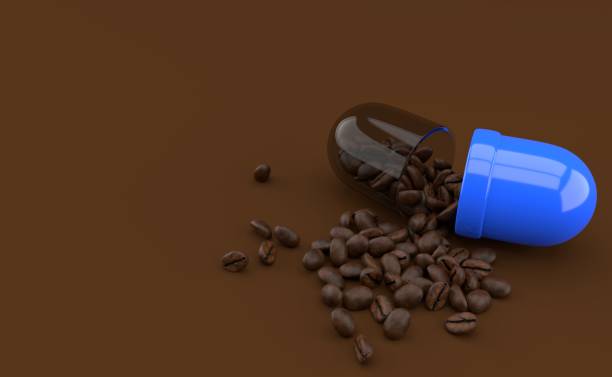If you’ve had too much coffee and are jittery, you might be wondering if there’s a way to remove the extra caffeine from your body.
Millions of people depend on caffeine, a natural stimulant, on a daily basis. However, consuming too much of it may result in negative side effects like trouble sleeping, a faster heartbeat, jitters, and shakiness.
This blog offers instructions on how to flush caffeine from your system as well as advice on how to lessen jitters and other unpleasant side effects.
Table of Contents
How Much is Too Much
Each individual has a unique caffeine metabolism. This is because the speed at which you process caffeine depends on a variety of factors, including your genetics, age, weight, tolerance, and liver.
The amount of caffeine that is generally regarded as excessive for adults is 400 milligrams or more, although reactions to caffeine can vary.
Also crucial to know is that children and adults have different upper limits on caffeine intake.
Children are more susceptible because they are lighter. Therefore, we advise against overuse in children.
The caffeine content in coffee varies depending on bean origin, flavor, roast, and grind, in addition to water temperature, brewing time, and, well, you get the idea. However, a typical cup of brewed coffee has caffeine levels that range from 65 to 120 milligrams, while a shot of espresso has levels that range from 30 to 50 milligrams.
When you consume more than is typical for you, you experience negative effects as opposed to a universally accepted threshold for how much is too much.
Snack bars, soda, bottled water, energy drinks, over-the-counter or prescription headache medications, and PMS medications are all examples of things that can push you past your own personal caffeine set point.
The Symptoms of Too Much Caffeine
The stimulant caffeine is used. It aids in waking you up in the morning because of this. It plays a significant role in why you like it.
There are other symptoms of too much caffeine in addition to that jittery leg. They range from uncomfortable symptoms like nausea, diarrhea, and anxiety to relatively mild symptoms like sweating and restlessness.
The good news is that despite how unpleasant they are, the majority of these symptoms won’t put your life in danger. Contrarily, cardiovascular symptoms call for caution.
Risks of Excessive Caffeine Intake
Although everyone tolerates caffeine differently, it is known to be safe.
It’s crucial to pay attention to any adverse effects, such as headaches, jitters, trouble falling asleep, and an elevated heart rate. Restrict your intake if you encounter any of these signs.
Caffeine overdoses are uncommon, but they can happen. They almost always result from consuming too many energy drinks and shots. Symptoms include:
- chest pain
- fever
- irregular heartbeat
- severe dehydration
- trouble breathing
- uncontrollable muscle movement
- vomiting
Seek immediate medical attention if you experience any of these symptoms after consuming a lot of caffeine.

How to Get the Caffeine Out of Your System
No More Caffeine
Don’t take any more caffeine today. Although it might seem like a given, watch out for accidentally munching on your usual mid-afternoon chocolate-covered snack bar.
Drink Plenty of Water
As a diuretic, caffeine causes you to urinate more frequently than usual, so you need to drink more water to make up for it. Dehydration should not be added to the discomfort.
Replace Electrolytes
You are losing electrolytes in addition to water if you have diarrhea or have been sick to your stomach. Use an electrolyte replacement product like Pedialyte to replace those.
Take a Walk
Take a walk to release some of your pent-up energy. However, stop immediately if you notice anything odd happening to your heart rate, such as a sudden, sharp increase.
Practice Deep Breathing
It’s likely that you breathe quickly and shallowly when you’re anxious, which will make you feel even more anxious. To restore normal breathing and lessen anxiety, take a few slow, deep, deliberate breaths.
Wait It Out
Within the first 45 minutes of consumption, caffeine typically produces stimulatory effects that can last for three to five hours.
Caffeine can also take up to 10 hours to completely leave your system.
It’s best to stop consuming caffeine six to eight hours before bed if you have sleep issues.
Practice Deep Breathing
Take five minutes of slow, deep breathing if you’re experiencing anxiety. To calm your mind and nervous system, try meditation instead.
Eat Fiber-rich Food
Caffeine may enter your bloodstream more slowly after eating. Select foods that take longer to digest and are high in fiber, like whole grains, beans, lentils, starchy vegetables, nuts, and seeds.
Final Thought: Listen to Your Body
Lack of sleep, jitters, shakiness and an elevated heart rate are all adverse effects of excessive caffeine consumption.
There isn’t a reliable at-home method to remove caffeine from your system besides waiting it out and avoiding caffeine. However, you can lessen its side effects by drinking plenty of water, taking walks, and consuming foods high in fiber.
Although your personal limits may vary, the majority of people can safely tolerate 400 mg of caffeine per day, or about 4 cups (945 mL), of coffee. Just consume what feels comfortable to you and pay attention to your body.
